Marco Castillo and his family have lived in exile in Mexico from Cuba since 2019. His new exhibition at KOW turns the spotlight on the censorship and repression regime in Cuba, which has grown more severe in recent years. What sets it apart from the exertion and impact of violence in some other autocracies is its—well, we might say: more participatory nature. It isthe expression of a “good,” left-wing government and its dedicated citizens, whose joint measures of coercive domestic political violence have drawn little international attention.
Seit 2019 lebt Marco Castillo mit seiner Familie im Exil in Mexiko. Seine neue Ausstellung bei KOW thematisiert die Zensur und Repression in Kuba, die sich in den letzten Jahren verstärkt haben und sich in ihrer Ausübung und Wirkung von der Gewalt manch anderer Regime dadurch unterscheiden, dass sie – nun ja, man könnte sagen: partizipativer sind. Ausdruck einer „guten“, linken Regierung und ihrer engagierten Citoyens, deren gemeinsame innere Gewaltmaßnahmen im Ausland oft unbekannt sind.
Casa Negra, 2022
Casa Negra, 2022
Casa Negra, Castillo’s new film, illustrates a practice of the collective branding of “deviationists”—critical thinkers, dissenters of any kind, those who are enemies of the revolution in the eyes of the regime and some of their fellow citizens—that has been commonplace since its implementation by Fidel Castro in the 1960s. Be they artists, intellectuals, liberals, or bourgeois: an outraged mob besets a home, raising a ruckus and noisily debating with the residents, and paints the windows and doors, the façade and the front yard, even the plants and tubs pitch-black. In this instance, a woman and child are inside the house; they are berated for the way they live their lives. The scenes recall zombie movies in which the monsters try to storm a worldthat is to all appearances perfectly normal.
Yet these are not monsters; they are colleagues and neighbors. And the scenes are not fictional but a kind of reenactment. Marco Castillo collected information and then reconstructed on film what many victims of such actions in Cuba have documented in footage streamed live on social media. All dialogues in the film are collages based on heated arguments and insults captured on video. On the phone with KOW, Castillo explains that these abuses are punishments for an alleged lack of solidarity with the Cuban people and its socialist revolution, instigated by the secret service and police and carried out by friends and acquaintances of the victims; some of the perpetrators are pressured into participating, while others are motivated by genuine conviction.
Castillo also mentions that he himself was involved in similar actions as a child; the memory has been a lasting source of shame. He has first-hand experience of these situations. So do the performers in his film: Cuban exiles living, like Castillo, in Merida, Mexico, a city that bears some resemblance to Havana and has long been a destination for émigrés from the island. Shooting the film there, he says, “I didn’t even need to tell them what to do. They were all familiar with these brutal rituals and knew exactly how they work. It’s a kind of tradition, a piece of folklore. Repression in Cuba is a collective business in which we have all taken part at one point or another. Virtually no one, myself included, is free of personal guilt.”
Castillos neuer Film Casa Negra (2023) zeigt eine von Fidel Castro eingeführte und seit den Sechzigerjahren übliche Praxis der kollektiven Brandmarkung von „Abweichlern“, kritischen oder sonst wie anders denkenden Menschen, die in den Augen des Regimes und mancher Mitbürgerinnen und -bürger Feinde der Revolution sind. Ob Künstler, Intellektuelle, Liberale oder Bourgeois. Eine Meute aufgebrachter Leute bemalt mit Tumult und unter heftigen Diskussionen die Fenster und Türen, die Fassade und den Vorplatz eines Wohnhauses, samt Pflanzen und Kübeln pechschwarz. Im Haus eine Frau und ihr Kind, die beschimpft werden für ihre Art zu leben. Es sind Szenen wie aus Zombiefilmen, in denen sich die Bestien das Innere einer ganz normal erscheinenden Welt erstürmen wollen.
Aber hier sind es keine Bestien, sondern Kolleginnen und Nachbarn der Opfer. Und die Szenen sind nicht Fiktion. Eher ein Reenactment. Marco Castillo hat gesammelt und dann filmisch rekonstruiert, was seit Beginn der sozialen Medien in Kuba vielfach von Betroffenen gleichartiger Aktionen live dokumentiert wurde. Die Dialoge im Film sind sämtlich collagiert aus hitzigen Diskussionen und Beschimpfungen, die per Video festgehalten wurden. Castillo erzählt KOW am Telefon, dass diese Übergriffe als Bestrafungen für unsolidarisches Verhalten gegenüber dem kubanischen Volk und seiner sozialistischen Revolution vom Geheimdienst und der Polizei angestachelt werden, und dann mal aufgrund von Erpressung, mal aus innerer Überzeugung von Akteuren aus dem eigenen Lebensumfeld exekutiert werden.
Castillo erzählt auch, dass er als Kind selber an ähnlichen Aktionen mitgemacht hat, was ihn später und seither beschämte. Er kenne die Situation aus eigenem Erleben. So auch die Darsteller im Film. Sie alle sind Exilkubaner, die wie Castillo in Merida, Mexiko, leben, einer Havanna ähnelnden Stadt, die seit langem ein Zufluchtsort emigrierter Kubaner ist und wo der Film gedreht wurde. „Ich musste ihnen gar nicht sagen, was sie tun sollten. Sie alle kannten diese brutalen Rituale und wussten genau, wie sie ablaufen. Es ist so etwas wie eine Tradition, ein Stück Folklore. Die Unterdrückung in Kuba ist eine kollektive Angelegenheit, an der wir alle irgendwann mitgewirkt haben. Da ist fast niemand frei von eigener Schuld, ich auch nicht.“
Water Paintings, 2018
Water Paintings, 2018
A new law passed in Cuba in 2018 requires artists to obtain advance authorization from the government before engaging in any kind of artistic activity. The Decree 349 scrupulously lists what artists are and are not allowed to do if they want to obtain a permit. It is forbidden, for example, to depict members of the political class in works of art, except in complimentary fashion. Without authorization, artists are not only barred from making or selling art. They are prohibited from engaging in any kind of artistic activity, whether in public or privately.
Marco Castillo and some of his allies sought to renegotiate the law with the government, but in vain. It came into force. During those days and weeks, Castillo painted the series of white paintings that are now making their debut outside Cuba at KOW. The government’s art inspectors monitored him closely to make sure he did not make any work that was not according to their standards. At night, he would stretch canvases over frames, prime them, and paint on them with water, whose traces soon vanished. What we now see are not blank canvases but impossible pictures executed with painstaking care and perhaps to brilliant effect. Just without paint. Witnesses to, manifestos from, an imposed silence. Muzzled art.
2018 wurde in Kuba ein neues Gesetz eingeführt, das nur solchen Personen die Ausübung einer künstlerischen Tätigkeit gestattet, die über einen staatlichen Künstlerpass verfügen. Akribisch listet der Gesetzestext auf, was Künstlerinnen und Künstler alles tun dürfen und was nicht, wenn sie diesen Pass bekommen wollen. Zum Beispiel ist es verboten, Personen aus der Politik in Werken abzubilden, es sein denn in lobender Weise. Hat man den Pass nicht, bedeutet das nicht nur Berufs- und Verkaufsverbot. Jegliches Verhalten als Künstler, ob öffentlich oder privat, ist dann zu unterlassen.
Marco Castillo und einige Mitstreitende versuchten erfolglos, mit der Regierung über das Gesetz zu verhandeln. Es trat in Kraft. In diesen Tagen und Wochen malte Castillo die Reihe weißer Bilder, die bei KOW nun erstmals außerhalb von Kuba gezeigt werden. Die staatlichen Kunstinspektoren überwachten das künstlerische Schaffen genau. Bei Nacht spannte er Leinwände auf Rahmen, grundierte sie und malte auf ihnen mit Wasser, dessen Spuren bald verschwanden. Nicht leere Leinwände sind nun zu sehen, sondern unmögliche Bilder, die akribisch und vielleicht virtuos und gelungen gemalt wurden. Nur eben ohne Farbe. Zeugen und Manifeste einer erzwungenen Stille, mundtot.
Black Paintings, 2023
Black Paintings, 2023
Over the past several months, Castillo has made another series of works. This time around, the pictures are black, a response to the windows smeared with black paint from the public excommunications shown in the film. Castillo’s media are flat wall-mounted acrylic glass boxes: painting-size abstract representations of the window motif. They are covered with the traces of hands covered in black paint—traces that expressively convey the emotional, social, and political drama of the assaults. At the same time, there is no genuine expression in these works, no drama, no accusation, not even actual subjectivity.
Castillo merely treated the media the way supplies are handled in the normal operation of an artist’s studio. Assistants—their hands blackened—helped him lift the objects from crates, carry them through the studio, mount them on a wall, take them down again, and put them back in the crates. No more, and no less. Only they did exactly what was declared illegal in Cuba: things that artists do every day, maybe hanging something here and unhanging something there, touching things and turning them around, without regard for the political and ideological line with which a finished work might be thought to be aligned.
While it is perhaps inevitable when talking about art to also talk about beauty, Marco Castillo finds this problematic in this context. If there is a certain appeal in these works, we note, it might lie in the conceptual approach of using simple gestures of art handling to create the impression of strong expression and emotion that may very well represent experiences of violence, but without ever making a gesture of subjective expressive articulation. This is interesting for the complicated discussions about good and problematic forms of artistic criticism and representation of violence.
In den vergangenen Monaten entstand eine weitere Werkserie. Diesmal sind es schwarze Bilder. Sie antworten auf die mit schwarzen Farben beschmierten Fenster aus den Diffamierungsaktionen, die im Film dargestellt wurden. Castillos Bildträger sind flache Plexiglaskästen, die an der Wand hängen: Abstraktionen des Fenstermotivs in Gemäldegröße. Sie sind beschmiert mit den Spuren schwarz bemalter Hände – Spuren, die das emotionale, soziale und politische Drama besagter Übergriffe expressiv vermitteln. Und zugleich gibt es in diesen Werken gar keinen Ausdruck, kein Drama, keine Anklage, ja nicht einmal wirklich Subjektivität.
Castillo behandelte die Bildträger lediglich so, wie man mit solchen Dingen nun mal im Studioalltag umgeht. Gemeinsam mit helfenden – geschwärzten – Händen wurden die Objekte aus Kisten geholt, durch das Atelier getragen, an eine Wand gehängt und wieder abgehängt, und wieder eingepackt. Mehr nicht, und nicht weniger. Man tat nur eben das, was in Kuba verboten wurde: ein ganz normales Alltagsverhalten von Künstlerinnen und Künstlern, die vielleicht hier etwas aufhängen und da etwas abhängen, Dinge anfassen und umdrehen, ganz gleich, auf welcher politischen und ideologischen Linie sich ein fertiges Werk dann würde verorten lassen.
Während es vielleicht unvermeidlich ist, wenn man über Kunst spricht, auch über Schönheit zu sprechen, findet das Marco Castillo in diesem Zusammenhang problematisch. Wenn es einen gewissen Reiz in diesen Werken gibt, so notieren wir uns, dann könnte dieser in dem konzeptionellen Ansatz liegen, durch einfache Gesten des Art Handlings den Eindruck starker Expression und Emotion zu erzeugen, die Gewalterfahrungen sehr wohl repräsentieren können, ohne dass aber je eine Geste der subjektiven expressiven Artikulation stattfand. Für die komplizierten Diskussionen über gute und problematische Formen künstlerischer Kritik und Gewaltdarstellung ist das interessant.
Text: Alexander Koch
Translation: Gerrit Jackson
Photos: Ladislav Zajac
Text: Alexander Koch
Photos: Ladislav Zajac





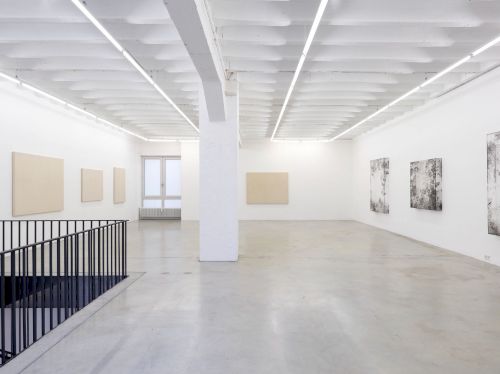
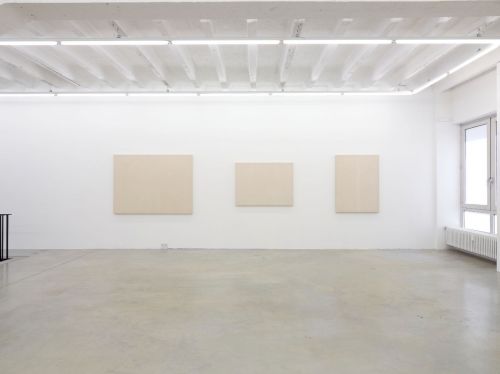
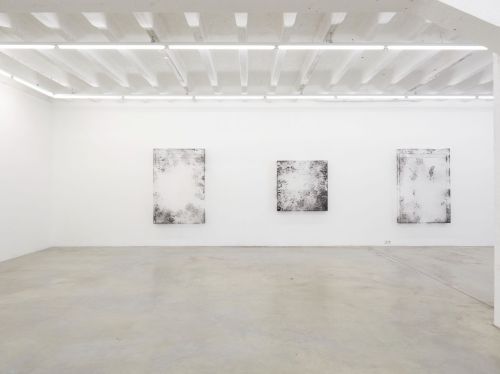
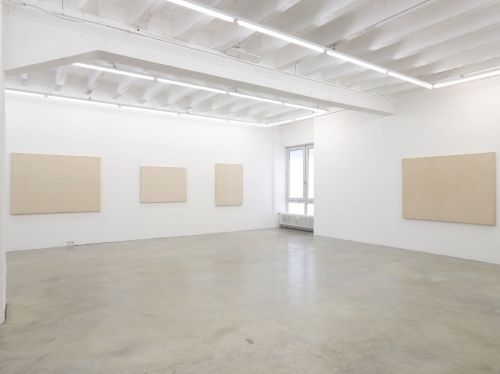
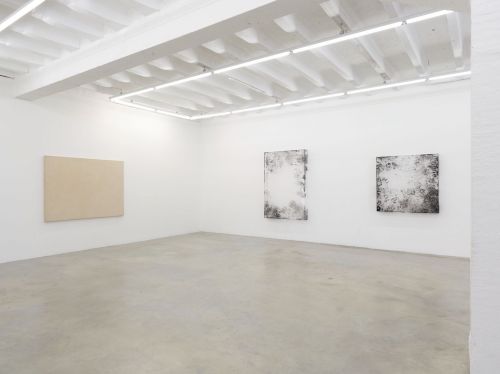
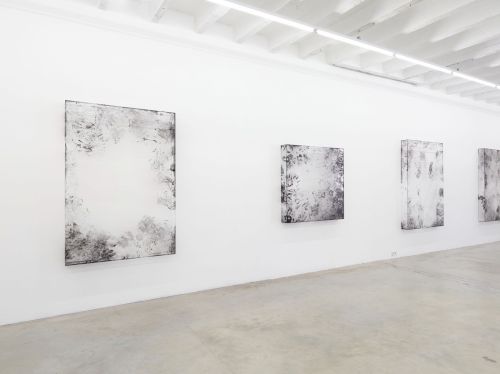
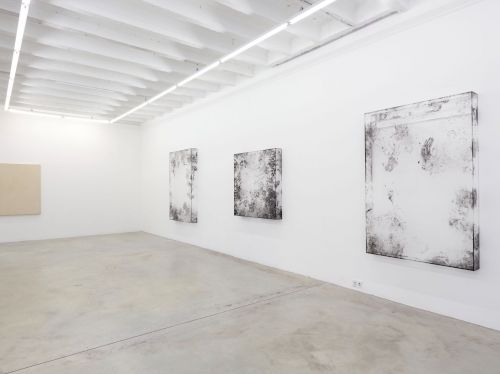
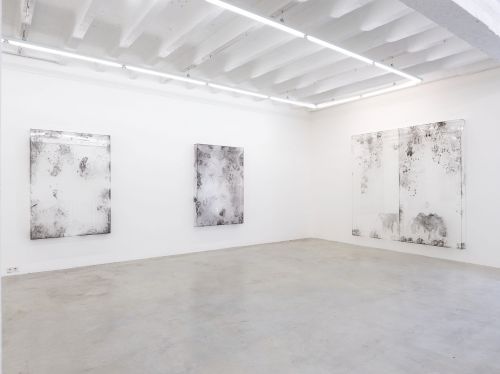
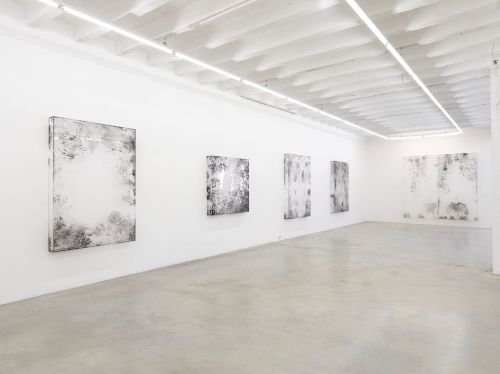


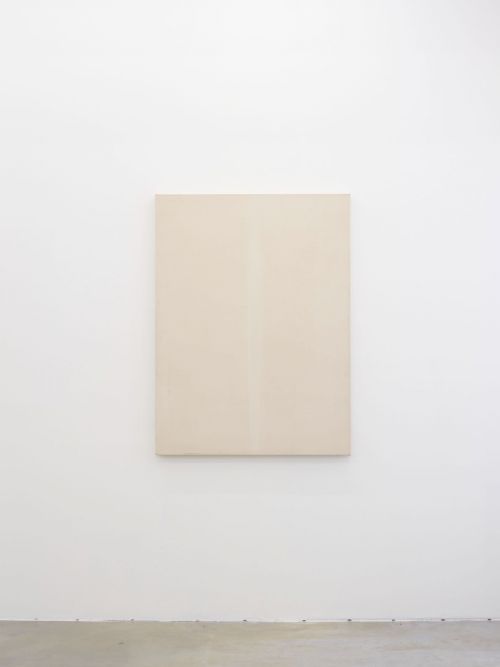

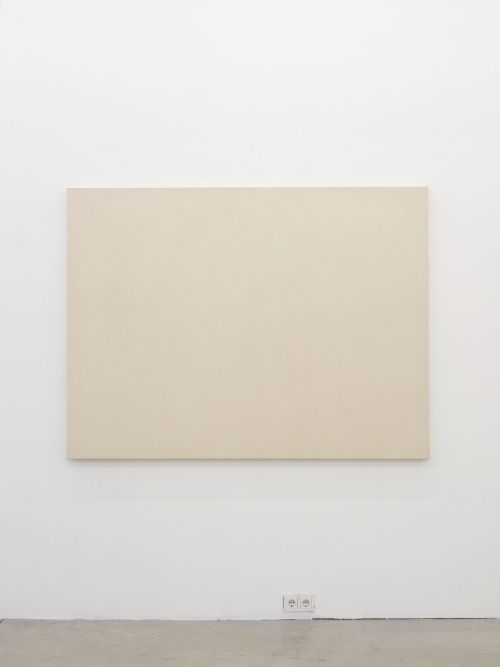
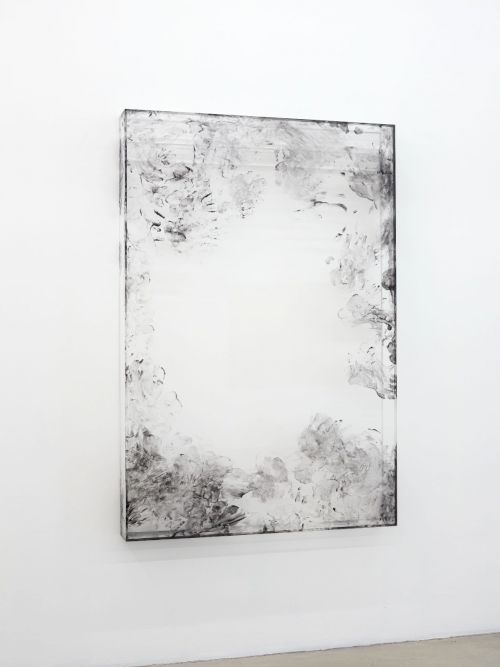
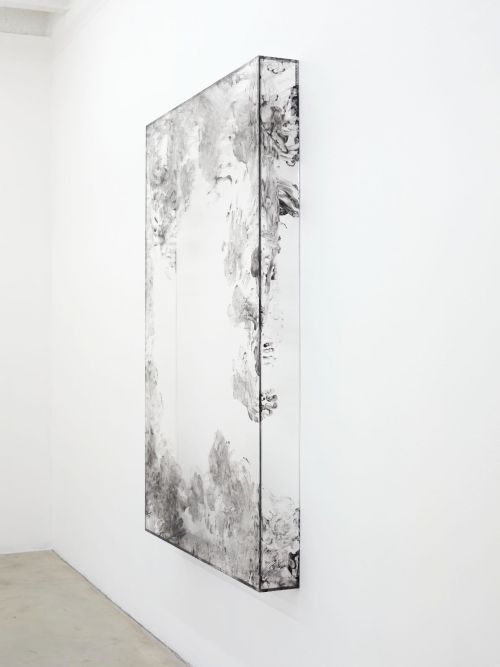
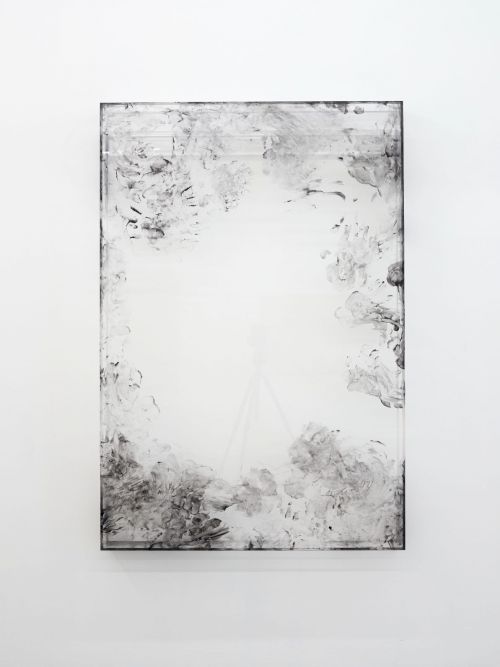
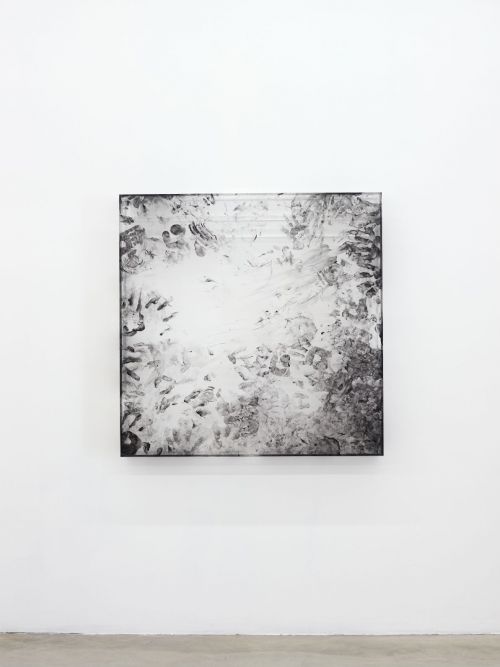
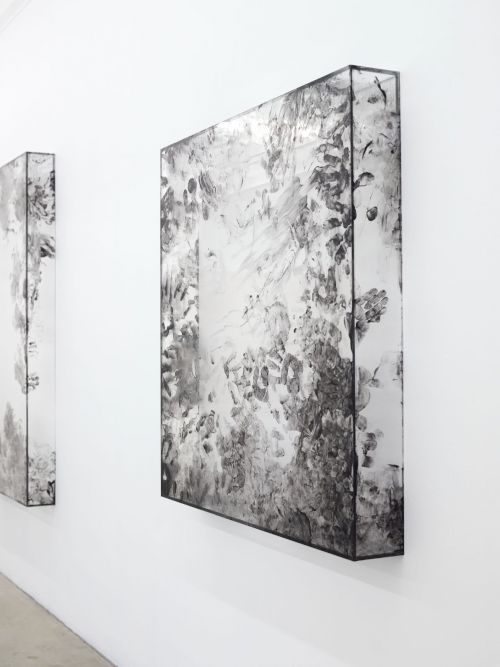
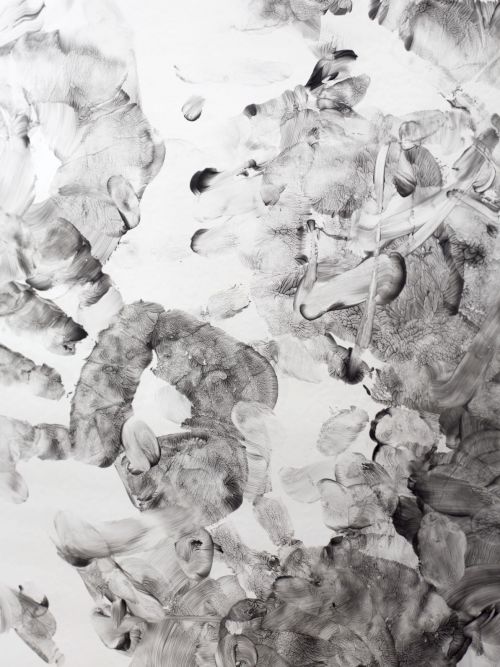
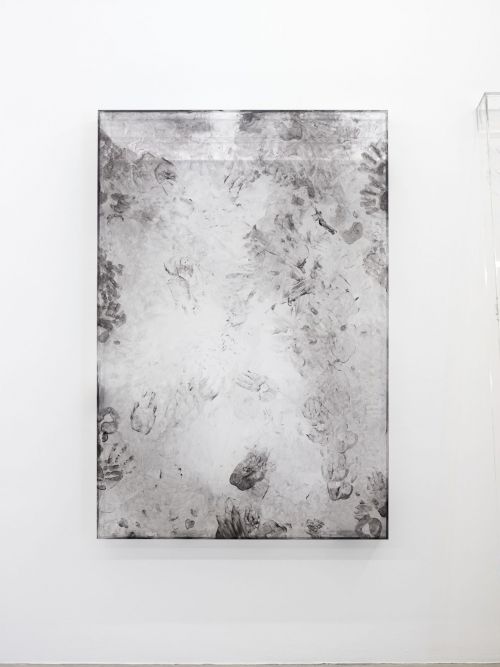
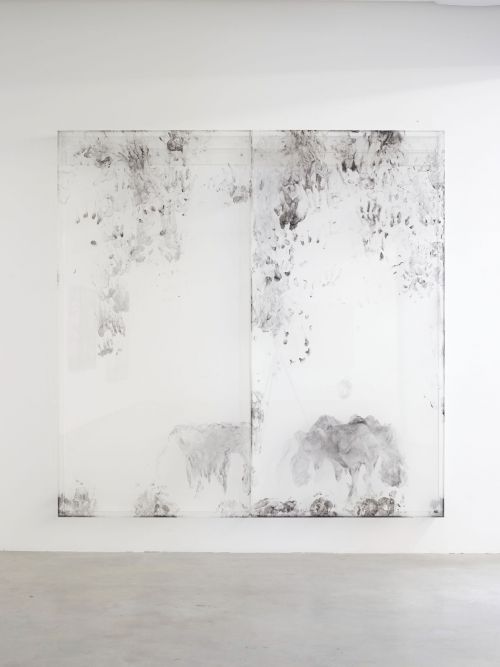
- Current
- Upcoming
- 2026
- 2025
- 2024
- 2023
- 2022
- 2021
- 2020
- 2019
- 2018
- 2017
- 2016
- 2015
- 2014
- 2013
- 2012
- 2011
- 2010
- 2009